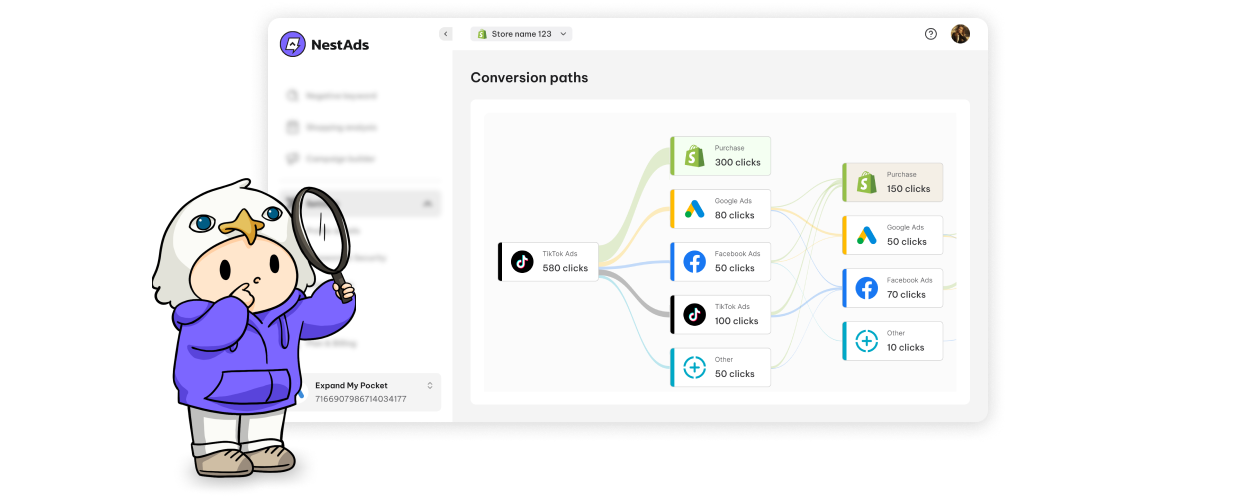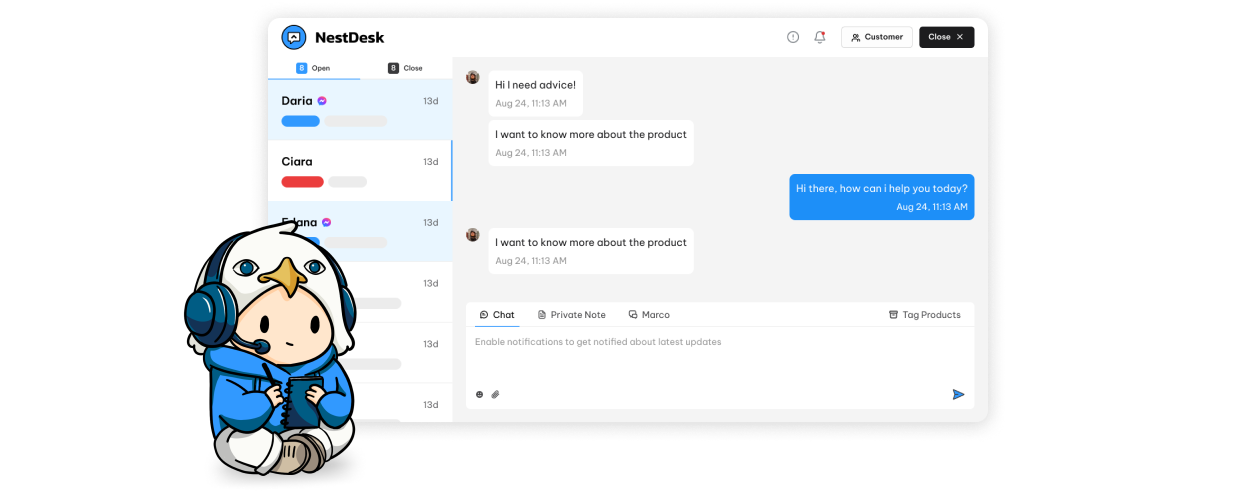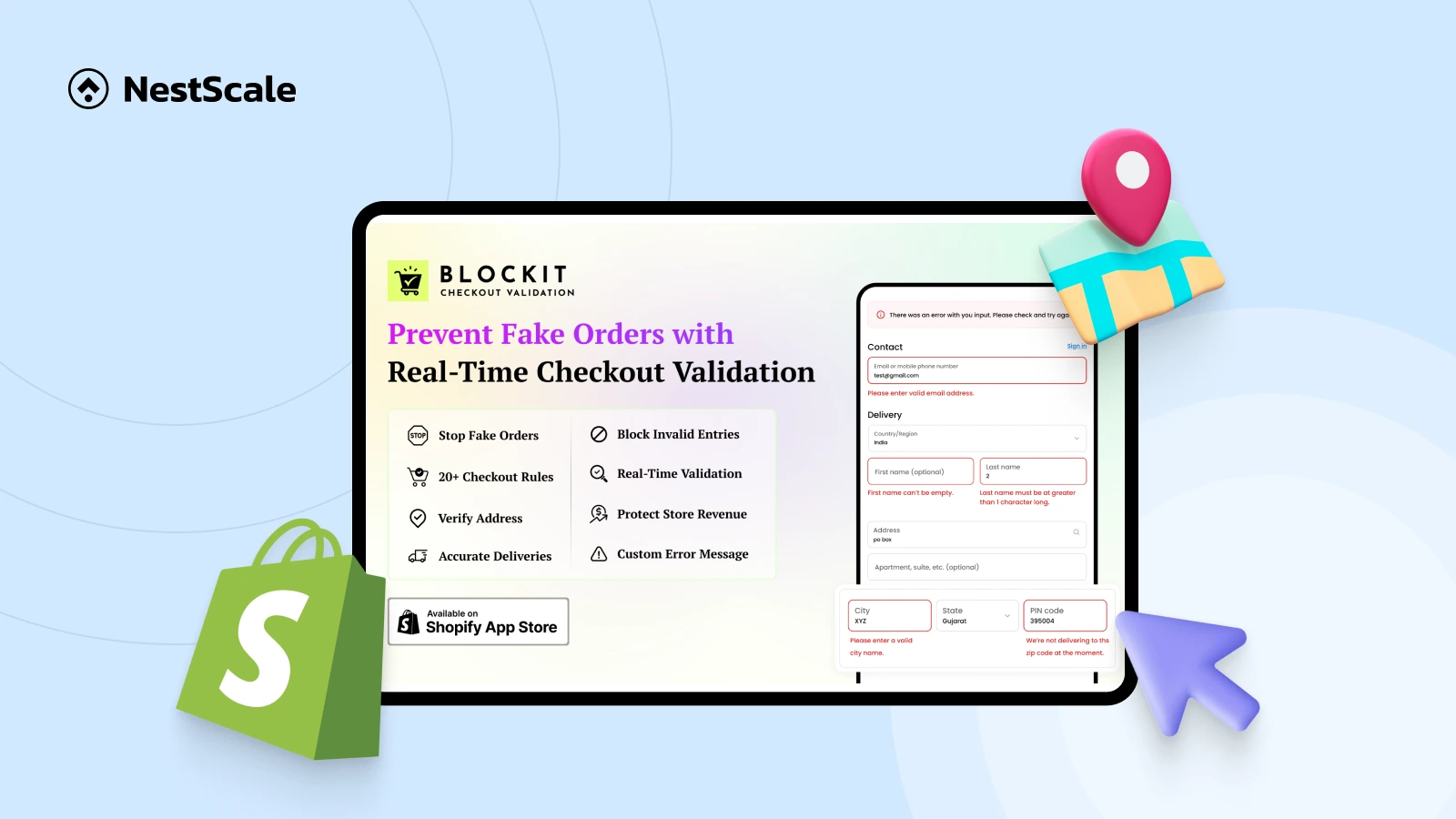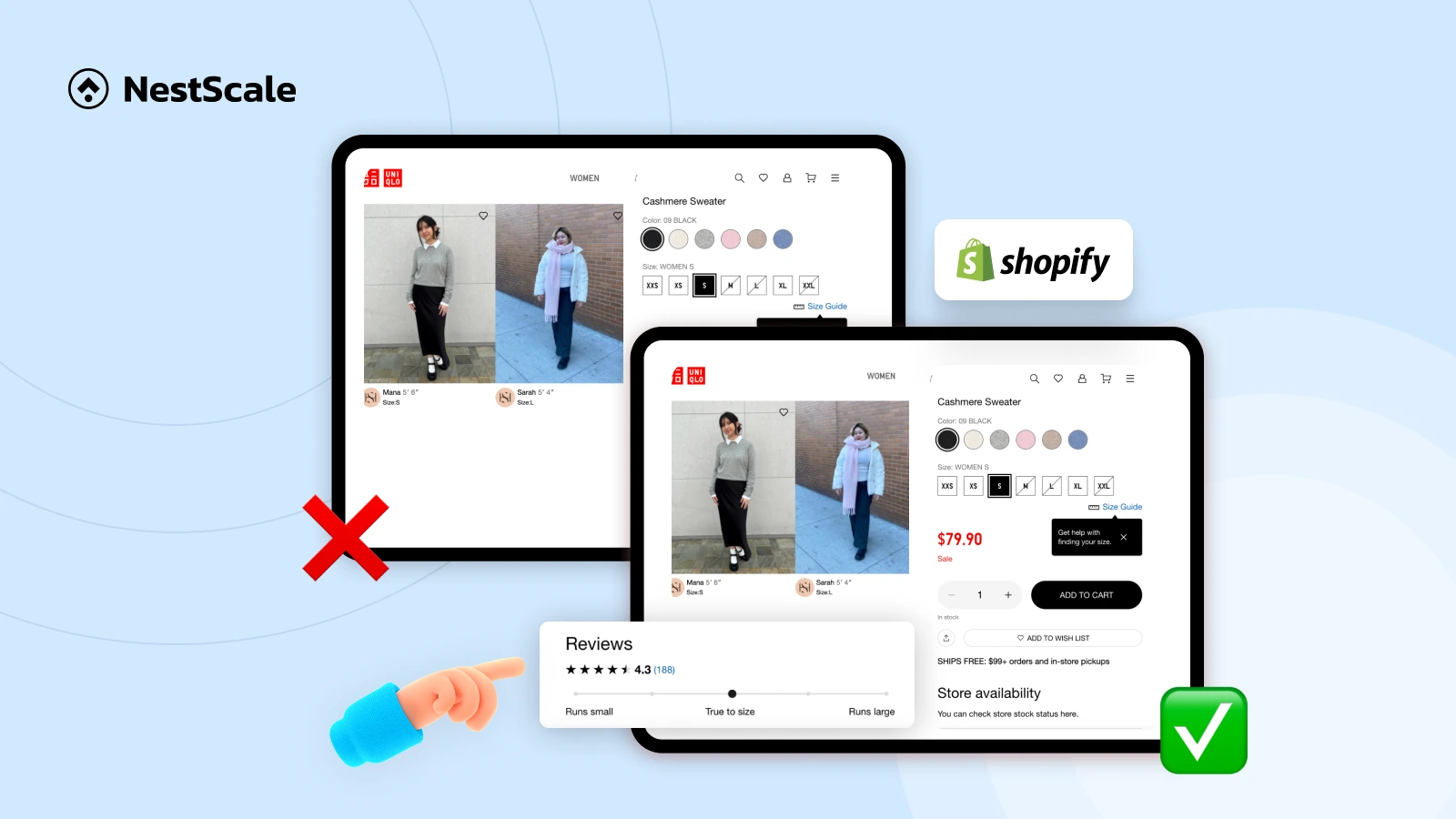When connecting to customers, businesses have to deal with a lot of requests and complaints which might not be really positive. With the help of empathy statements for customer service, you can avoid these circumstances and deliver a happier experience for customers.
In this blog, you will learn what empathy statements in customer service are, why they are important, and some sample empathy statements that we have curated for you.
What is an empathy statement in customer service?
An empathy statement in customer service is basically a way of showing your customers that you understand and care about their feelings and concerns. It’s like saying, “Hey man, I get where you’re coming from and I’m here to help you out.”
For example, let’s say one of your customers is complaining about a late delivery. Instead of just saying, “Sorry about that, it’ll be there soon,” you could say something like, “I’m really sorry that your order is running late. I know how frustrating it can be to wait for something you’ve been looking forward to. Let me check on the status for you and see what I can do to make it right.”
By acknowledging the customer’s frustration and showing that you’re on their side, you’re building trust and rapport with them. This can help turn a negative experience into a positive one, and keep them coming back to your store in the future. So, be sure to use empathy statements in your customer service interactions and show your customers that you care!
Why are empathy statements important for customer service?
Builds trust
When a representative acknowledges a customer’s feelings and shows that they understand their perspective, it can create a sense of validation and empathy that can go a long way towards establishing trust.
This is especially important in situations where the customer is upset or frustrated, as they may be more likely to feel like the company is on their side and working to resolve their issue.
When customers trust the company and its representatives, they are more likely to continue doing business with them, recommend them to others, and be more forgiving of any mistakes or issues that may arise in the future.
Reduces frustration
Empathy statements can be particularly effective in reducing frustration because they show customers that the representative is listening and understands their point of view. When customers feel like they are being heard and that their concerns are being taken seriously, it can help to defuse any anger or frustration they may be experiencing.
This can make it easier for the representative to work with the customer to find a resolution to their issue, as the customer may be more willing to engage in a productive conversation rather than becoming defensive or hostile.
By acknowledging the customer’s emotions and showing empathy, the representative can create a more positive interaction that can lead to a better outcome for both parties.
Shows professionalism
By using empathy statements, the representative is displaying their ability to connect with the customer on an emotional level, which can set them apart from competitors who may not prioritize empathy in their customer service interactions.
This level of professionalism can also create a more positive and memorable customer service experience, which can ultimately lead to increased customer loyalty and word-of-mouth referrals.
Creates positive word-of-mouth
When a customer has a positive experience with a company’s customer service, they are more likely to share that experience with others. Positive word-of-mouth can be incredibly valuable to a company, as it can lead to new customers and increased loyalty from existing customers.
People are more likely to trust the recommendation of a friend or family member than they are to trust a company’s marketing materials, so positive word-of-mouth can be a powerful tool for building a company’s reputation.
By using empathy statements, companies can increase the likelihood that customers will have a positive experience and share that experience with others.
Increases customer loyalty
When customers feel valued and appreciated, they are more likely to remain loyal to the company and continue to do business with them in the future.
By using empathy statements, customer service representatives can help to create a sense of loyalty in the customer, as they feel that the company cares about their experience and is willing to go the extra mile to ensure their satisfaction.
Additionally, loyal customers are more likely to recommend the company to others and make repeat purchases, which can have a positive impact on the company’s bottom line.
20 Examples of Empathy statements in customer service:
Greeting your customers with empathy

By making a first positive impression with your customer, you can kick-start the conversation more friendly.
The rule here is that you should greet customers by their names whenever you start a conversation. This will show that you remember them and always care about their needs.
- “Good morning James! Are you facing any problems with your recent purchase?”
- “Hi Peter, we are so pleased to help you with your problems”
- “Hi Jake, Thank you very much for alerting us about this…”
Confirming your skills and eagerness to solve issues for customers
After having a friendly greeting to customers, let them know that you understand their situation.
By showing that you want to hear from them, you make customers feel that you pay a lot of attention and are willing to give them your hands whenever they want.
Then, in the thoughts of your customers, shape your dependable and loyal image.
- “I want to ensure that I fully get what you’re saying. That’s what I’m hearing…”
- “I understand your situation and realize how significant this is to you.”
- “Please tell me more about what exactly you are facing.”
Mitigating an angry customer

No matter how hard you try, you will never be able to please all customers. What you should do is treat them well and make sure they do not get bad experiences.
If a customer query cannot be resolved immediately, you should let the customer know an estimated time of completion. Making a commitment regarding your customers’ problems will lessen their rage and increase trust between you and your customers.
- “I’m so sorry you have to experience this.”
- “I’ll give you a call as soon as we have an update.”
- “This should be resolved by the end of the weekend, Mr/Ms…”
- “You are correct. We must act immediately.”
Reaffirming the conversation
You cannot empathize with a customer unless you fully understand what the problem is. Paraphrasing what the customer said will allow you to clarify the customer’s meaning, and ensure that you both are on the same page or not. Additionally, this procedure will demonstrate to the clients that you have been paying attention to them.
Regarding misinterpreted information, you will end up the misunderstanding and failing to meet customers’ requests. So, by giving customers an opportunity to correct your understanding of their inquiry, you can have a full picture of the problem.
- “I want to confirm that I fully comprehend everything you’re saying. I have heard that…”
- “When I’m finished, if I made a mistake, would you mind correcting me, if that’s alright?”
- “Then you’re saying that…”
- “Please let me know if I have the story right.”
Asking more questions
Some clients might be reluctant to raise several issues at once. So, you need to make sure that you are ready to ask them for more.
This will help you to learn more about their problems and also express your care and understanding of the individual’s problems.
- “Do you require anything today, big or small?”
- “What can I do to make your interaction with us better?”
- “Are our goods/services up to par with your X demands?”
Using empathy statements for closing conversation
Knowing when and how to end a conversation is critical for letting clients know that their problems have been addressed. Use an empathy statement for customer service to express your sincerity and willingness.
Finally, you can express your regrets and explain why you are hesitant to address their concerns. You should also thank them for picking your brand over others. Here are some positive empathy statements to help you end a conversation on a positive note:
- “We’re pleased to have put things right for you. Have a wonderful day.”
- “I’m grateful you contacted me about this.”
- “I sincerely apologize for any inconvenience and appreciate your time and consideration.”
Start create lasting relationships with their customers today!
Empathy statements are crucial for building trust, reducing frustration, and creating a positive customer service experience. As a business, it is important to prioritize empathy in customer service interactions to establish long-term customer loyalty and positive word-of-mouth.
NestDesk is a customer support application that can centralize all conversations across multiple channels, deliver personal responses, and generate sales within one inbox. By incorporating empathy statements and utilizing a customer support tool like NestDesk, businesses can improve their customer service experience and create lasting relationships with their customers.























































